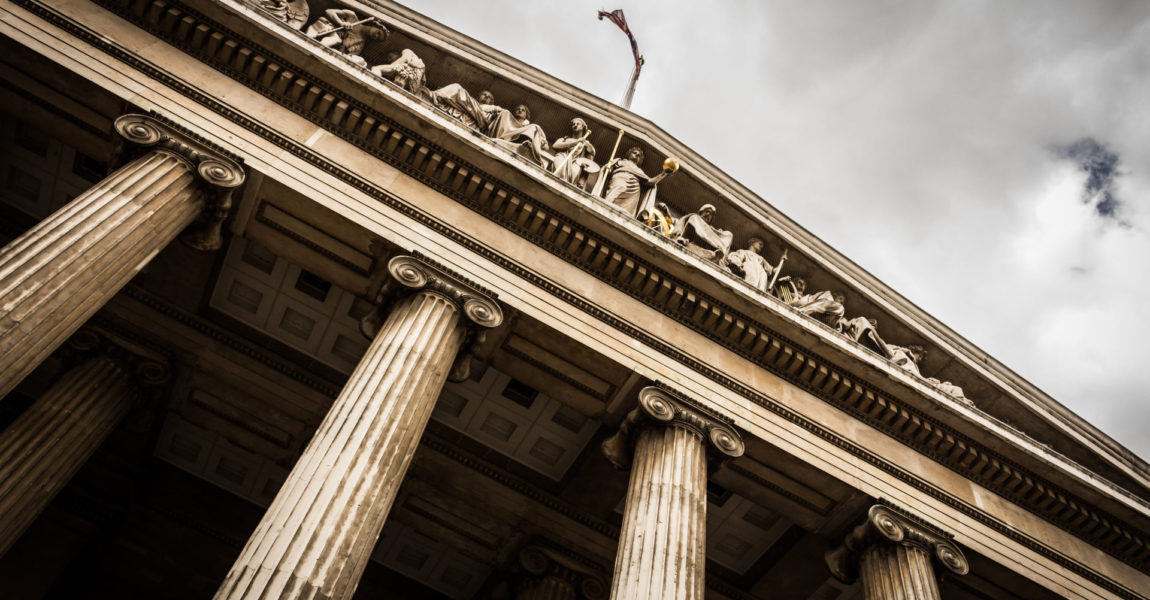
Because the First Amendment is the first for a reason. Larry’s thoughts on the importance of free expression, and the challenges it faces is this emerging era.
Yes, Democracy Does Die in Darkness
The America we know wouldn’t exist and cannot persist without the freedom of expression. Indeed, free speech is the foundational principle of our Constitutional order. It is the First Amendment for a reason. As the son of a political refugee who was born in a place lacking the protections of our guaranteed free speech, I understand the power of the freedom to write or say whatever one wishes, however unpopular. It’s true that with the freedom of speech comes vile, bigoted hate speech, but that same freedom of speech allowed for the advancement of all major social movements in our beloved country’s history.
As the Washington Post’s slogan makes plain, “Democracy Dies in Darkness.” While one may take issue with the contents of the paper’s articles, few would question the power of its slogan. The slogan works because it is true. Democracy does die in the darkness that accompanies the absence of robust, spirited and free debate. Such debate need not and indeed should not include threats of violence and overt acts or plans taken in connection with a violent act or scheme. That is not what is at the core of the debate here, and the suggestion otherwise by some is nothing more than a rhetorical sleight of hand used to advance specific agendas and silence broadly agreed upon points of view.
I am a trained attorney with a keen interest in constitutional law. So, I understand that not all speech is protected by the Constitution. Indeed, the framers could not have conceived of the world we live in. The freedom of speech was designed to protect the public against government intrusion on free expression. The framers didn’t imagine today’s reality, in which the public square has effectively moved into private hands. Put plainly, for all practical intents and purposes, the most important speech, the speech that can actually be heard, now passes through private digital channels. That reality does not change the nature of the background constitutional law, but the fact that the First Amendment doesn’t protect such speech certainly doesn’t render the suppression of such speech a public good. Remember democracy is supposed to die in darkness.
Our First Amendment rights have been trampled by Big Tech, abandoned by the media, and neglected by the Democratic Party. Our nation was founded on the principle of freedom, and that freedom is now under attack.
Because I agree that democracy dies in darkness I think it is a sad moment when essentially any viewpoint, however offensive, ridiculous or downright stupid, is silenced provided that such voices and/or viewpoints don’t directly relate to the advocation of violence, as I stated earlier. So I reject the convenient and reductionist notion that private companies should be allowed to manipulate the public square simply because the First Amendment doesn’t prohibit them from doing so.
This is where smart and commonsense legislation comes into play. And this is why I believe that I am your best advocate to advance legislation that expands the spirit of the First Amendment more broadly so that the liberties promised to us by it can be enjoyed. Many of you have likely heard of an arcane provision of a law, referred to as the Section 203 of Communication Decency Act, in connection with the contemporary debate regarding free speech and its intersection with Big Tech, in the modern era.
Section 203 was essentially designed to protect speech, by protecting tech companies from liability associated with the actions taken by individuals posting content on their online properties. But, this legal provision, effectively designed to protect companies fostering free speech came to be used by those same companies as a legal shield enabling them to censor content and viewpoints with impunity. The results can be seen everywhere, as we live in an environment in which speech has become increasingly chilled online and in real life.
Democracy cannot function without the freedom of speech, and thus democracy cannot function without the reform of Section 203. That is why I propose a new legal regime in which social media platforms with usership exceeding certain commonsense thresholds, are prohibited from using Section 203 for the purposes of silencing speech, excepting those categories of speech that are not otherwise constitutionally protected, specifically threats of violence and overt acts or plans taken in connection with a violent act or scheme. The public deserves an honest conversation about where such thresholds are to be set. Perhaps tech companies with domestic usership rates exceeding 5,000,000 unique persons a month should be prohibited from censoring as they currently do under the guise of Section 203.
I cannot make this determination alone, nor should I. But, it is clear that because freedom of speech matters, because speech should not be chilled online, at work or in campuses, Section 203 must be reformed. It must be reformed because democracy indeed does die in darkness, and the spirit of the First Amendment must be honored. Our democracy is at stake, and I stand here with you to fight for that democracy.